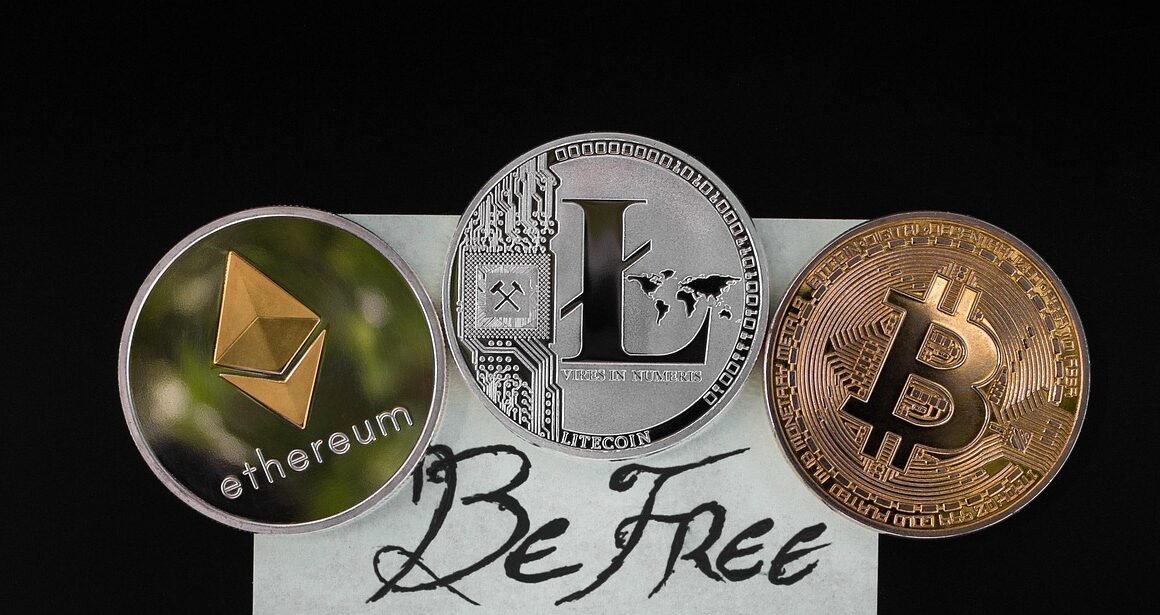Privacy in the digital age is no longer a luxury; it’s a necessity. As blockchain technology and cryptocurrencies become increasingly integrated into our daily lives, the ability to transact privately and securely becomes paramount. This is where privacy coins come into play, offering enhanced anonymity and confidentiality compared to traditional cryptocurrencies like Bitcoin. This comprehensive guide will delve into the world of privacy coins, exploring their mechanisms, benefits, challenges, and future prospects.
Understanding Privacy Coins
Privacy coins are cryptocurrencies designed to obscure the details of transactions, making it difficult to trace the sender, receiver, and amount transacted. This is in contrast to cryptocurrencies like Bitcoin, where transactions are recorded on a public ledger (the blockchain), allowing anyone to view transaction details associated with specific wallet addresses. While pseudonymous, Bitcoin transactions can be linked to real-world identities through various tracing techniques. Privacy coins aim to overcome this limitation.
Key Features of Privacy Coins
- Anonymity: The ability to mask the identities of senders and receivers.
- Untraceability: Making it difficult to link transactions to specific individuals or entities.
- Confidentiality: Hiding the amount of cryptocurrency being transacted.
- Fungibility: Ensuring that each coin is interchangeable and not tainted by its transaction history (a coin’s history cannot be traced and used to discriminate).
How Privacy Coins Enhance Privacy
Privacy coins employ various cryptographic techniques to achieve enhanced privacy. These techniques include:
- Ring Signatures: Allow a user to sign a transaction on behalf of a group (a “ring”) of users, making it difficult to determine the actual sender. Monero utilizes ring signatures. Imagine you are sending money within a group of ten people, but only one of you is truly sending it. Ring signatures obfuscate who the real sender is within that ring of ten.
- Stealth Addresses: Generate a unique, one-time address for each transaction, preventing others from linking multiple transactions to the same receiver. Again, Monero is a good example.
- CoinJoin: Mixes multiple transactions together, making it difficult to trace the source and destination of funds. Wasabi Wallet uses CoinJoin for Bitcoin privacy.
- zk-SNARKs (Zero-Knowledge Succinct Non-Interactive Argument of Knowledge): Allow a transaction to be verified without revealing any information about the transaction itself. Zcash utilizes zk-SNARKs. Imagine proving you know a password without ever revealing the password itself. This is the core concept behind zero-knowledge proofs.
- Mimblewimble: A blockchain protocol that removes transaction history from the blockchain, making it more compact and private. Grin and Beam implement Mimblewimble.
Types of Privacy Coins
Different privacy coins utilize different privacy mechanisms and offer varying levels of anonymity. Here’s a brief overview of some popular privacy coins:
Monero (XMR)
- Privacy Technology: Ring signatures, stealth addresses, and RingCT (Ring Confidential Transactions) to hide transaction amounts.
- Strengths: Strong privacy features are enabled by default, making all transactions private. Large and active community. Widely used and accepted.
- Weaknesses: Larger transaction sizes compared to other cryptocurrencies due to the use of ring signatures, which can lead to higher transaction fees.
- Practical Example: Using Monero to purchase goods or services online anonymously.
Zcash (ZEC)
- Privacy Technology: zk-SNARKs for shielded transactions (transactions that hide sender, receiver, and amount).
- Strengths: Potentially very strong privacy when using shielded transactions. zk-SNARKs allow for faster verification than some other privacy techniques.
- Weaknesses: Shielded transactions are not enabled by default, meaning users must actively choose to use them. A significant portion of Zcash transactions are not shielded.
- Practical Example: Transferring funds to a colleague or business partner without revealing the amount being sent to anyone else.
Dash (DASH)
- Privacy Technology: PrivateSend (CoinJoin implementation) which mixes coins from multiple users to obfuscate transaction origins.
- Strengths: Faster transaction times than Monero. Optional privacy features.
- Weaknesses: PrivateSend requires users to actively participate in the mixing process, and privacy is not guaranteed. Considered less private than Monero or Zcash when using shielded transactions.
- Practical Example: Using PrivateSend to make everyday purchases with an added layer of anonymity.
Beam (BEAM)
- Privacy Technology: Mimblewimble protocol for confidential transactions and compact blockchain size.
- Strengths: Highly scalable and confidential transactions.
- Weaknesses: Still a relatively new project compared to more established privacy coins.
- Practical Example: Conducting private financial transactions with businesses.
Grin (GRIN)
- Privacy Technology: Mimblewimble protocol, similar to Beam.
- Strengths: Strong focus on privacy and scalability. No addresses are stored on the blockchain.
- Weaknesses: Requires both sender and receiver to be online at the same time to complete a transaction.
- Practical Example: Conducting private transactions among online gaming communities.
Benefits of Using Privacy Coins
Privacy coins offer several compelling benefits for individuals and businesses:
- Protection of Financial Information: Prevents sensitive financial data from being publicly exposed. This is especially crucial in regions with oppressive regimes or where financial information can be used for discriminatory purposes.
- Enhanced Security: Reduces the risk of being targeted by hackers or scammers, as transaction details are hidden. If your transactions are public, it makes you a target.
- Business Confidentiality: Protects sensitive business transactions and prevents competitors from gaining insights into financial activities. Imagine a competitor knowing exactly how much your business is spending on supplies each month.
- Freedom of Association: Allows individuals to support causes or organizations without fear of retribution or surveillance. This is particularly important for whistleblowers and activists.
- Circumventing Censorship: Enables individuals to bypass financial censorship and access funds freely.
- Promotes Fungibility: Ensuring each coin is interchangeable and not tainted by its transaction history.
Challenges and Controversies
Despite their benefits, privacy coins also face several challenges and controversies:
Regulatory Scrutiny
- Concerns About Illicit Activities: Regulators are concerned that privacy coins can be used for money laundering, tax evasion, and other illegal activities.
- Delisting from Exchanges: Some cryptocurrency exchanges have delisted privacy coins due to regulatory pressure.
- Increased Compliance Requirements: Privacy coins face increased scrutiny and compliance requirements from regulatory bodies.
Scalability Issues
- Larger Transaction Sizes: Some privacy technologies, like ring signatures, can result in larger transaction sizes, leading to slower transaction times and higher fees.
- Blockchain Bloat: Privacy features can contribute to blockchain bloat, making it more difficult to run a full node.
Technical Complexity
- Complexity for Users: Using privacy coins effectively can require a deeper understanding of the underlying technology. The average user might find setting up and using shielded Zcash transactions to be confusing.
- Potential for Errors: Users may inadvertently reveal their identities or transaction details if they are not careful.
Moral and Ethical Considerations
- Balancing Privacy and Transparency: The debate over whether the benefits of privacy outweigh the potential risks of illicit activities continues.
- Responsibility of Developers: Developers of privacy coins face ethical considerations regarding the potential misuse of their technology.
The Future of Privacy Coins
The future of privacy coins is uncertain but potentially transformative. Here are some potential developments:
Technological Advancements
- Improved Scalability Solutions: Researchers are working on new technologies to improve the scalability of privacy coins.
- Enhanced Privacy Features: Continued development of more advanced privacy techniques.
- Integration with Other Cryptocurrencies: Exploring ways to integrate privacy features into other cryptocurrencies.
Regulatory Clarity
- Developing Clearer Regulations: Regulators are working towards developing clearer and more consistent regulations for privacy coins.
- Adoption of KYC/AML Compliant Privacy Solutions: Exploring the possibility of developing privacy solutions that are compliant with Know Your Customer (KYC) and Anti-Money Laundering (AML) regulations.
Mainstream Adoption
- Increased Acceptance by Merchants: As privacy becomes more valued, merchants may begin to accept privacy coins as a form of payment.
- Integration into Financial Services: Potential for integration into traditional financial services, such as banking and investment platforms.
Conclusion
Privacy coins represent a significant step towards a more private and secure financial future. While they face challenges related to regulation, scalability, and technical complexity, their potential benefits for protecting financial information, enhancing security, and promoting freedom of association are undeniable. As technology evolves and regulatory landscapes become clearer, privacy coins are likely to play an increasingly important role in the broader cryptocurrency ecosystem. It is crucial to stay informed about the latest developments in privacy coin technology and to understand the risks and benefits before using them. Remember to always do your own research (DYOR) before investing in any cryptocurrency.



